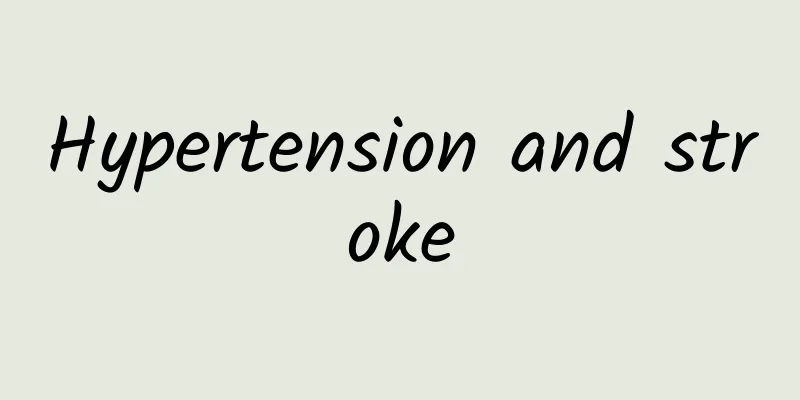What are the effects on women who have had their uterus removed?

|
For women who are about to have their uterus removed, it is necessary to understand the impact of hysterectomy on themselves. So what effects will women who have their hysterectomy suffer? Next, this article will explain the impacts on women who have had their uterus removed from four aspects. Friends who want to know more about this can take a look! Please see the detailed introduction below. What are the effects on women who have had their uterus removed? The effects of hysterectomy on women are as follows: 1. Symptoms of depression The endocrine regulation of the uterus and ovaries forms a feedback system with the central nervous system. After the hysterectomy, this feedback link is destroyed. In particular, when the estrogen level drops, it will interfere with the normal secretion and metabolism of central neurotransmitters, which can cause varying degrees of anxiety and depression symptoms, such as low mood, anxiety, lack of interest, insomnia, memory loss, etc., thereby reducing women's quality of life. 2. Urinary system symptoms The female urinary system is homologous to the reproductive system and is both an estrogen-dependent organ. After hysterectomy, the estrogen level decreases, which can cause the elastic tissue around the urethra to thin, resulting in urinary incontinence, atrophy of the urethral mucosa, decreased resistance, and easy induction of urinary tract infection, and a series of urinary tract irritation symptoms such as frequent urination, urgency, and pain when urinating. 3. Sexual dysfunction Estrogen is the most important regulating hormone for female sexual function, and the ovaries are the main secretory organs. After hysterectomy, the blood supply and function of the ovaries are affected. Most women will experience varying degrees of changes in sexual function, such as decreased or lack of libido, decreased frequency of sexual activity, decreased sexual responsiveness, difficulty in orgasm, and decreased sensation in the reproductive organs. 4. Ovarian dysfunction Before menopause, the endocrine system between the uterus and ovaries maintains a precise and subtle dynamic balance. Hysterectomy will inevitably disrupt this balance and may cause ovarian function to decline, making menopausal symptoms earlier and more obvious. Post-hysterectomy care: Six weeks after total hysterectomy, the patient should go to the hospital for a follow-up examination to understand the wound healing situation. Sexual intercourse is generally prohibited for 3 months after surgery to facilitate wound recovery. You can resume your sex life afterwards. In clinical practice, subtotal hysterectomy is often used for young women and those who have no lesions in cervical cancer prevention examinations. Since the cervix is retained, the vagina still maintains its original depth, and the feeling during sexual intercourse is better than that of a total hysterectomy. However, regular cervical cancer prevention smear examinations should be performed to prevent the occurrence of cervical cancer and stump cancer. Studies have shown that ovarian function will be affected to a certain extent 3 to 5 years after hysterectomy, and patients will experience some menopausal symptoms, such as hot flashes, sweating, irritability, and vaginal dryness, which will affect sexual life. At this time, you should go to the hospital for examination. If necessary, use hormone replacement or apply medications such as cod liver oil ointment to promote a harmonious sexual life. Pay attention to enhancing nutrition, proper physical exercise, and doing couples' health exercises to increase the body's resistance, which is also beneficial to postoperative physical recovery and harmonious sexual life. The above is an introduction to the impacts on women who have had their uterus removed. From the above introduction, we can see that the impact of hysterectomy on women is relatively large. Therefore, when women choose whether to undergo a hysterectomy, they must weigh the pros and cons! This way you won't regret it. |
<<: How to take care of yourself after breast cancer surgery
>>: How to perform the natural childbirth breathing method
Recommend
Women can quickly change their breasts from A cup to D cup by eating red dates and peanuts
Women all want to have an S-shaped figure and are...
How does belly fat form? How can you lose it?
This article was reviewed by Tao Ning, PhD, Assoc...
Why is a marathon called a marathon? Marathon division rules
In recent years, more and more people have starte...
Massage method for lobular hyperplasia of breast
Lobular hyperplasia of the breast is a relatively...
How to make homemade apple cider vinegar? How to use apple cider vinegar
Apple cider vinegar is a sweet and sour drink. Yo...
Uterine transplant surgery and treatment
Since the human body is not perfect, everyone is ...
Wolfberry leaf pictures
In recent years, there has been a health and well...
Can Tibetan chrysanthemum be soaked in water with jujubes? What should I do if I have altitude sickness when I go to Tibet?
Tibetan medicine is a unique medical system forme...
What should I do if my period is delayed for six days?
Menstrual period is often used as a sign of women...
Are you still a zebra girl?
First paragraph: Pigmentation is a type of facial...
Can fingers be infected with HPV? Many girls like to do this, but you must be careful →
A while ago, there was a news report about a youn...
What should I do if I have abdominal pain and light menstrual flow?
What should I do if I have abdominal pain and sca...
How long does it take for high blood sugar to recover after childbirth?
Many women will experience high blood sugar durin...
How to use oseltamivir dry suspension, an anti-influenza virus drug? Pharmacists can help you
Oseltamivir is one of the most effective drugs fo...
How to carry out maternity confinement care and postpartum recovery?
With the continuous development of social economy...









